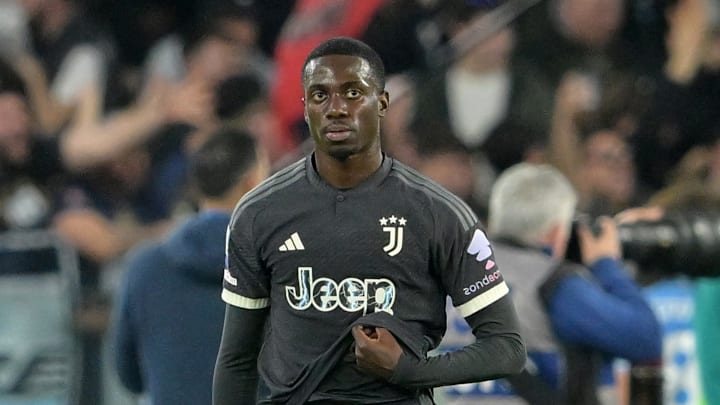Juventus' recent acquisition of Timothy Weah for a substantial 12 million euros has raised eyebrows among football experts, with Massimo Marianella leading the charge in questioning the wisdom behind the club's investment. The American forward, who has transitioned into a right midfielder role, has yet to deliver performances that justify his hefty price tag.
The Bianconeri, known for their astute transfer dealings, took a risk by signing Weah from Lille this summer. The young player, carrying the weight of his father George Weah's legacy, was expected to inject fresh energy into Juventus' squad. However, his impact has been underwhelming, leaving many wondering if the club's gamble will pay off.

Weah's time at Lille was marked by moderate success, with eight goals and assists across four seasons. His versatility, allowing him to play various positions across the front line and even as a full-back, was seen as a valuable asset. However, this adaptability has also exposed his weaknesses, with both his defensive capabilities and offensive output coming under scrutiny.
At Juventus, Weah was tasked with filling the void left by the departure of Juan Cuadrado and bolstering the team's attacking options. Unfortunately, with just one goal and one assist in 29 appearances, the young forward has struggled to make a significant impact.
Marianella has been vocal in his criticism of the club's decision to invest heavily in a player who has yet to prove himself consistently at the highest level.
The scrutiny surrounding Weah's signing comes at a time when Juventus is navigating financial challenges and aiming to rebuild their squad without overspending. The club's transfer strategy has been largely conservative, focusing on more cost-effective acquisitions like Tiago Djalo from Lille. Weah's signing stands out as an exception to this approach, raising questions about the club's decision-making process.
Juventus' willingness to consider offloading other talented players, such as Federico Chiesa and Dusan Vlahovic, to maintain financial stability further emphasises the delicate balance the club is trying to strike. Weah's signing, in this context, appears to be a risky move that has yet to yield the desired results.
Marianella's critique of Timothy Weah's transfer to Juventus reflects the player's underwhelming performances and the club's broader financial strategy. While Weah's potential is evident, his contributions have not matched the significant investment made by the club.
As Juventus continues to navigate a challenging economic landscape, the decision to bring Weah on board will remain a talking point, with his future at the club likely hinging on a significant improvement in his on-field performances.
The young player must step up and demonstrate his worth, silencing his critics and proving that he can be a valuable asset to the team. For Juventus, the hope is that their gamble on Weah will eventually pay off, justifying the faith they have placed in him and the substantial financial outlay they have made.
